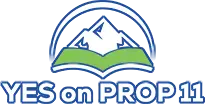Questions & Answers

Retirement is a state function that every district pays into. This is something that isn’t in control of any local school board. Additional things like early retirement benefits and health care benefits are determined by the local school board. Realistically, due to the proximity and the history of being a part of ASD, the benefits between the three districts will probably be quite similar. This is something that is negotiated every year prior to the budget adoption in June.
Utah law requires that all teachers maintain their current salary, benefits, and seniority for the first year after the split. Newly elected school board members will then need to make sure our district is an attractive place to work. In this way, market forces could help improve pay and benefits for teachers.
The number of students in special ed or special programs in the Central District will get the same funding per student as before. There is the possibility that those programs could be more specifically targeted to the needs and desires of parents and students in the Central District, if the needs are significantly different. Otherwise, those programs will remain the same going forward. There is no reason why they should change.
School districts are required to enter into shared service agreements for up to 5 years to allow students to continue to access special education services (e.g. schools like Dan Peterson and ATEC East). All programs will be subject to the new school board. In general, communities will have a greater say in what programs they want to offer.

